Refugees in Dzaleka refugee camp struggle to make ends meet amid funding cuts.

Refugees in Dzaleka refugee camp struggle to make ends meet amid funding cuts.
A general view shows Dzaleka refugee camp hosting over 53,000 refugees.
In the heart of Malawi’s Dzaleka refugee camp, under the pale stretch of a leaking thatched house, Didier Cikara Zirimwabagabo gently wipes a tear from his face as he recalls the night that changed everything. “It was 15 July 2018. That night, I lost my siblings… and the life we had.” He recalled.
Didier, 42, worked as an investigative journalist in Bukavu, in the Democratic Republic of Congo where his reporting on sensitive cases and human rights abuses drew serious threats to his safety. First, he received threats. Then, armed men attacked his house in the middle of the night. “We ran with nothing but our lives,” he said. “My wife and I survived, but we left behind everything else, including my two siblings who never made it out.”
With his wife Nadine, their two children, and his youngest sister, Didier arrived in Malawi in 2018. They settled in Dzaleka refugee camp a month later, joining thousands of others seeking refuge from war and persecution. But instead of safety and a new start, Didier found a life of continued hardship.
“Life here is very hard. We are not living but barely surviving,” Once fully employed and able to provide for his family, Didier now faces a life of economic and emotional isolation. The war scattered his extended family, and his wife Nadine has never emotionally recovered. She suffers from depression emanating from the experience she encountered when she witnessed her loved ones being killed back in DRC. She also suffers from diabetes and hypertension. “She sometimes has seizures, and the camp clinic only gives painkillers.” Shared Didier.
Amid ongoing funding cuts, medical services in the camp have decreased sharply. Didier says nearly every hospital he visits gives the same response that they are out of medicine. “My wife needs regular treatment and special food for her condition. But now, even hospitals which used to partner with UNHCR told us they can’t help. They said the funding is gone.”
Funding cuts have not only crippled the health system, but food assistance provided by WFP is also declining. Didier’s family and many others are on the edge of hunger. “In December, we got MK18,000 (US$10.3) per person. In February, it dropped to MK15,000 (US$8.6). Next month, there will be nothing.” With a family of five, even affording a 50kg bag of maize is out of Didier’s reach.
Desperate to feed his family, Didier tried farming a small piece of land. But the maize crop failed due to El Niño-induced drought, and he could not afford to buy fertilizer.
Didier’s family still has a roof over their heads, he worries it could be taken away if camp policies change. And with the withdrawal of funds, the camp’s community policing units, once a source of some security, have stopped their patrols.
All around Dzaleka, this year, community-based organization staff have been laid off. NGOs are scaling down or leaving. Livelihood programs, training sessions, awareness, and sensitization campaigns are all vanishing. By May, Didier says, all livelihood activities will be closed. “Self-reliance is the only option we have left. But even that requires a beginning. We need start-up capital, technical training and tools which all requires money.”
As of 31 March, UNHCR had only received only 12 per cent of the US$ 26.3 million required to adequately support refugees and asylum-seekers in Malawi this year. This has crippled UNHCR’s ability to meet the protection, assistance and livelihood needs of the people it serves. Due to funding shortfalls, UNHCR does not have the resources to meet the needs of the refugees, including the upgrade of transit shelters and the provision of household items.
For many in Dzaleka, the support they received is not charity, it is a lifeline for them. “We totally depend on that support.When it is taken away, it means hunger, death, hopelessness.”
He dreams of a day when his children can go to school without relying on a well-wisher’s mercy. When his wife can get the treatment, she needs. When he can stand proudly again, not just as a refugee, but as a respected father, husband and man. Until then, he waits. And hopes.


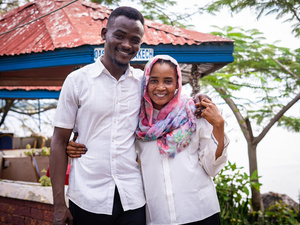
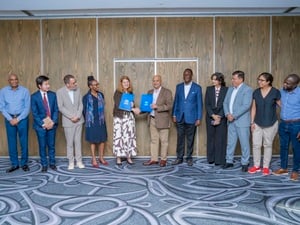

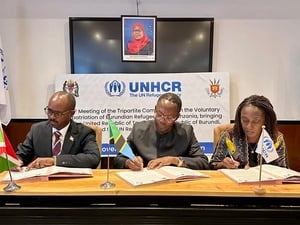
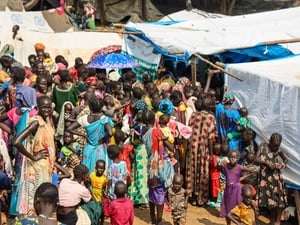

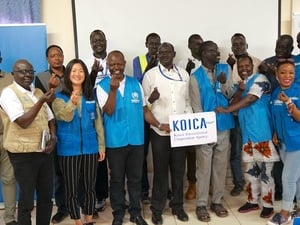
![To improve access to sustainable energy and increase agricultural production for both refugees and their host communities, UNHCR is working with the Zambian authorities to connect all three refugee settlements in the country to the national grid. UNHCR has also supported the construction of value-addition centres in the settlements, which provide refugee farmers with various services such as storage, processing, packaging, and refrigeration to improve productivity and increase access to local markets, including the mining industry.“We are currently getting fruits and vegetables from refugee [farmers],” said Priscilla, community relations officer at Golden Camp Solutions, a private catering company that serves employees of Lumwana copper mine. “We are looking at a ton of cabbage a week and about 500 kilograms of tomatoes. There is no difference between a refugee supplier and a regular supplier.” Zambia. Zambian farm communities reap the benefit of giving opportunities to refugees](/africa/sites/afr/files/styles/d03_traditional/public/RF1442455.jpg?h=10d202d3&itok=8wPBFW9q)